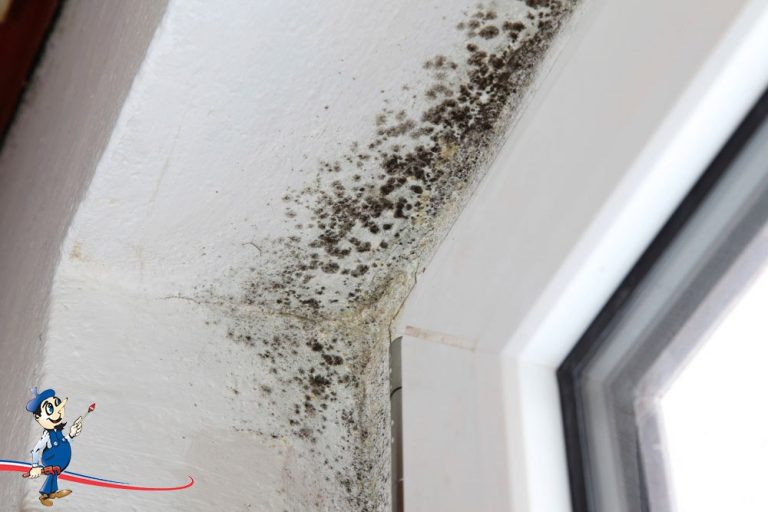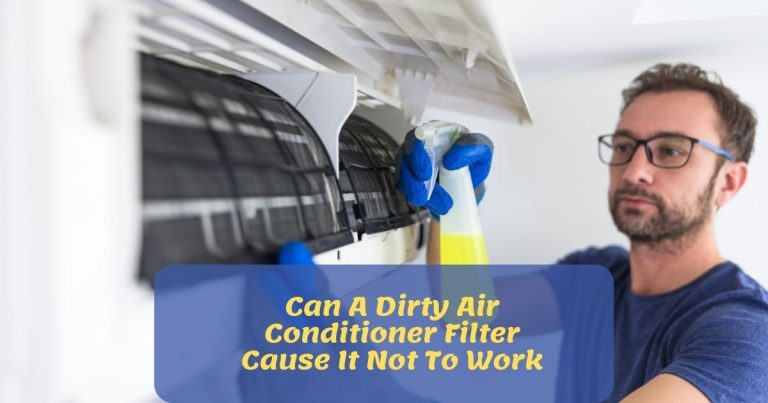Can Air Conditioner Mold Make You Sick? Unveiling The Health Risks
Yes, air conditioner mold can make you sick. Mold growth in air conditioning units can lead to respiratory issues, allergies, and other health problems. It is important to understand and address potential sources of mold growth to maintain a healthy indoor environment. Preventive measures and effective ventilation strategies can help prevent air conditioner mold and safeguard your well-being.
Did you know that your air conditioner, the very appliance that provides you with cool and comfortable indoor air, could be making you sick? It’s true. Air conditioner mold, a common issue in homes and workplaces, has the potential to negatively impact your health.
For individuals who own or use air conditioners, ensuring a healthy indoor environment is essential. Mold growth in air conditioning units can lead to respiratory issues and other health problems.
The target audience for this topic includes those who are concerned about their well-being and want to prevent potential health risks associated with mold exposure. The importance of understanding whether air conditioner mold can make you sick cannot be overstated. With the rising awareness of the impact of indoor air quality on our health, it is vital to address potential sources of mold growth, such as air conditioning units.
In this article, we will delve into the effects of air conditioner mold on your health and discuss preventive measures and effective ventilation strategies to maintain a mold-free environment. By exploring the causes, symptoms, and solutions related to air conditioner mold, you will gain valuable insights and practical advice to safeguard your well-being. So, if you want to breathe easy and create a healthier indoor environment, join us as we uncover the truth about air conditioner mold and its potential impact on your health.
The Effects of Air Conditioner Mold on Your Health
Air conditioner mold is a common problem that many people are unaware of. Mold can grow and thrive in the moist and dark environment of an air conditioning unit, leading to potential health risks for those exposed to it. In this section, we will explore the various ways in which air conditioner mold can affect your health.
1. Respiratory Issues
One of the most significant health concerns associated with air conditioner mold is respiratory problems. When mold spores are inhaled, they can irritate the airways and cause allergic reactions or worsen existing respiratory conditions such as asthma. Symptoms may include coughing, wheezing, shortness of breath, and chest tightness.
In some cases, exposure to air conditioner mold can lead to more severe respiratory infections or trigger respiratory allergies. People with weakened immune systems, such as the elderly or those with chronic illnesses, may be at a higher risk of developing these complications.
2. Allergic Reactions
For individuals who are allergic to mold, exposure to air conditioner mold can lead to a range of allergic reactions. These reactions may manifest as sneezing, runny nose, itchy and watery eyes, skin rashes, and throat irritation.
It’s important to note that even if you are not allergic to mold, prolonged exposure to air conditioner mold can still cause sensitization, making you more susceptible to developing allergies in the future.
3. Sinus Infections
Mold spores released by air conditioner mold can irritate the nasal passages and sinuses, potentially leading to sinus infections. Symptoms of a sinus infection include facial pain, pressure, congestion, and a runny or blocked nose. If left untreated, sinus infections can become chronic and require medical intervention.
4. Headaches and Fatigue
Exposure to air conditioner mold can also contribute to the development of headaches and fatigue. Mold releases volatile organic compounds (VOCs), which can cause neurological symptoms in some individuals. These symptoms may include headaches, difficulty concentrating, memory problems, and a general feeling of tiredness.
If you often experience unexplained headaches or find yourself feeling constantly fatigued in your home or workplace, air conditioner mold could be a potential culprit.
5. Irritation of the Skin, Eyes, and Throat
Direct contact with air conditioner mold or exposure to mold spores in the air can cause irritation of the skin, eyes, and throat. This can result in redness, itching, watering eyes, and a sore throat.
Individuals who already have sensitive skin or pre-existing eye and throat conditions may experience more pronounced symptoms when exposed to air conditioner mold.
Preventing Air Conditioner Mold
Now that we understand the potential health risks associated with air conditioner mold, let’s explore some preventive measures you can take to ensure a mold-free environment:
1. Regular Maintenance and Cleaning
Regular maintenance and cleaning of your air conditioning unit is crucial in preventing mold growth. Make sure to follow the manufacturer’s guidelines for cleaning and inspecting your unit. Clean or replace filters regularly and remove any accumulated moisture or debris.
2. Control Humidity Levels
Mold thrives in moist environments, so it’s essential to control humidity levels in your home or workplace. Use a dehumidifier if necessary, especially in areas with high humidity. Keep the humidity level below 50% to discourage mold growth.
3. Proper Ventilation
Ensure that your air conditioning unit is properly ventilated to allow for adequate airflow. This will help reduce moisture accumulation and prevent the conditions that promote mold growth. Consider using exhaust fans in kitchens and bathrooms to remove excess humidity.
4. Address Water Leaks Promptly
Water leaks can create a perfect breeding ground for mold. If you notice any water leaks in or around your air conditioning unit, address them promptly. Repair any leaks and dry out the affected areas thoroughly to prevent mold growth.
5. Keep the Area Around the Unit Clean
Regularly clean the area around your air conditioning unit to remove any dust, dirt, or debris that can contribute to mold growth. Ensure that the unit has enough space around it for proper airflow.
Air conditioner mold can indeed make you sick, affecting your respiratory system, causing allergies, sinus infections, headaches, and fatigue. It’s crucial to remain vigilant and take preventive measures to ensure a mold-free environment. Regular maintenance, controlling humidity levels, proper ventilation, addressing water leaks promptly, and keeping the area around the unit clean are all essential steps in preventing and combating air conditioner mold.
By following these practices and staying informed about the risks associated with air conditioner mold, you can create a healthier indoor environment and breathe easy.
How to Fix Smelly AC in Your Car Like the Pro in 3 Minutes
Frequently Asked Questions (FAQ)
Can mold in an air conditioner make you sick?
How does mold in an air conditioner impact your health?
How can you prevent mold growth in your air conditioner?
Can mold in an air conditioner be removed?
When should you seek professional help for mold in your air conditioner?
Final Words: Preventing and Managing Air Conditioner Mold for Better Health
In conclusion, air conditioner mold can have significant health effects on individuals exposed to it. The respiratory system is particularly vulnerable, with symptoms ranging from mild allergic reactions to more severe respiratory infections.
Allergic individuals may also experience skin, eye, and throat irritation. Mold exposure can contribute to sinus infections, headaches, and fatigue, as well as sensitization to mold, leading to future allergies.
To prevent air conditioner mold, regular maintenance and cleaning of the unit are essential, along with controlling humidity levels, ensuring proper ventilation, addressing water leaks promptly, and keeping the area around the unit clean. By following these preventive measures, individuals can create a healthier indoor environment and reduce the risk of falling sick due to air conditioner mold. It is crucial to remain vigilant and stay informed about the risks associated with mold to ensure the well-being of yourself and your loved ones.
Taking proactive steps to prevent and combat air conditioner mold can help you breathe easier and improve your overall health.






